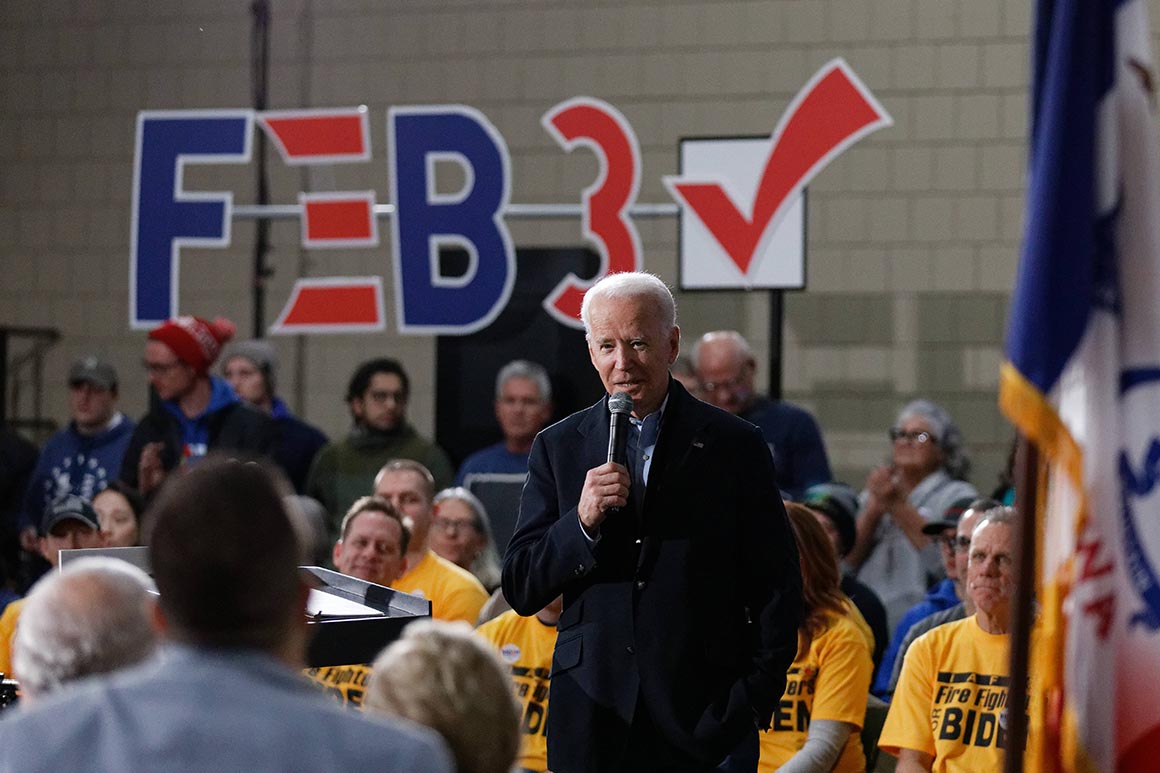
Former Rep. John Delaney, a non-factor in public polling in Iowa despite campaigning tirelessly there since 2017, said Wednesday that he was not aware of outreach to his campaign from any other competitor. He doubted it would be effective.
“The folks in Iowa are so well informed that they know full well who they’re going to go with, and I think they probably have in their minds their first, second and third choices,” he said. “I don’t know how much utility there is in these alliances people are talking about. We’re talking about the most informed voters in the country.”
Yang, speaking to reporters in Des Moines on Wednesday, said that his campaign has “no guidance for our caucus-goers who don’t find us to be viable.”
However, he said, “I think that many of my supporters would naturally head to Bernie…I think that Bernie and I do have a lot of overlap in support. So, it wouldn’t be surprising to me if many of our supporters head in that direction.“
He said, „I’m not sure [pushing supporters to caucus for other candidates] is my job to say to someone that, ‘If it’s not me then it should be this other person’ unless it’s at a point where frankly, I’m not in a position to be a candidate myself and I’m endorsing someone and obviously we’re nowhere near that kind of stage.’”
Biden is narrowly leading in Iowa, according to the Monmouth poll, with 23 percent support. Sanders is running slightly behind him, at 21 percent.
In precincts where Biden is viable but other moderate candidates — such as Klobuchar or Buttigieg — are not, the former vice president is widely expected to gain ground on second balloting. Sanders’ surge in recent polls has unnerved many moderate Democrats who fear that if he wins Iowa, he may become the nominee.
“You talk to people, and they’re like, ‘Oh my God, if Bernie’s going to win, I guess we have to go to Biden,’” said Jeff Link, an Iowa-based Democratic consultant.
Still, he said it would likely be “easier to say who not to go to than it is to say who you should caucus for.”
Biden’s rivals view him as weaker in Iowa than polls suggest, seeing Monday as a turning point when superior organizations such as Warren’s or Buttigieg’s may give those campaigns an edge. Klobuchar, who watched her polling numbers rise into the high single-digits in Iowa over the last month, is also on an upswing in the state.
One aide to a rival campaign who received the Biden campaign’s overtures said, “The fact that they brought it up is a big sign of weakness for them [and] reflects a lot of what we’re seeing in the field.”
A Biden adviser dismissed news of the talks as a “nothing burger” and said “these talks happen all the time with everyone.” Added another adviser: “It would be malpractice if people weren’t talking.”
For lower-tier candidates, the potential deal-making could come with some benefits, like taking credit for any bump the more viable campaign might receive or joining the shortlist for prime positions in any future administrations. Or there might be ideological considerations at stake when deciding where to direct their supporters.
Supporters of lower-polling candidates are acutely aware of the calculation that they will have to make on caucus night as concerns about “second choice” have come to color the final days of campaigning.
At a Steyer event in Ankeny this week, Aaron Reynolds, a small business consultant, said he likes Steyer, Yang and Sen. Michael Bennet, but joked that he is “behind all the candidates who don’t stand a chance, so that’s great.” He said he will probably caucus for Steyer and, if he is not viable in his precinct, “default to Biden,” who he views as a “status quo” choice.
Others may prove immovable. Robert Hites, a retired tire builder who wore a Steyer t-shirt, hat and buttons to the gathering, said that if Steyer falls out of the race entirely after the early state caucuses and primaries, he will likely get behind Biden. But he feared caucusing for any other Democrat on Monday could hurt Steyer’s chances in New Hampshire, Nevada and South Carolina.
If his first choice isn’t viable, he said, “I may just leave.”
Maya King, Marc Caputo, Ryan Lizza and Christopher Cadelago contributed to this report.
Source: politico.com
See more here: news365.stream






